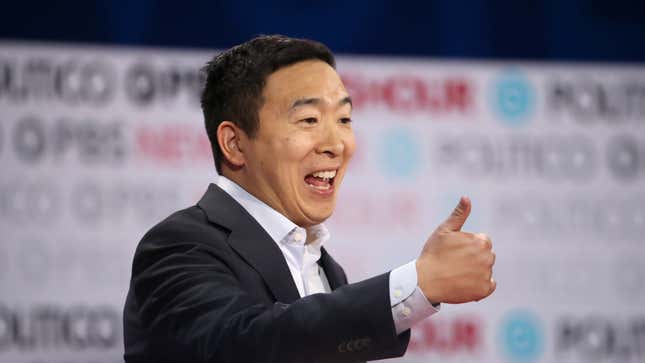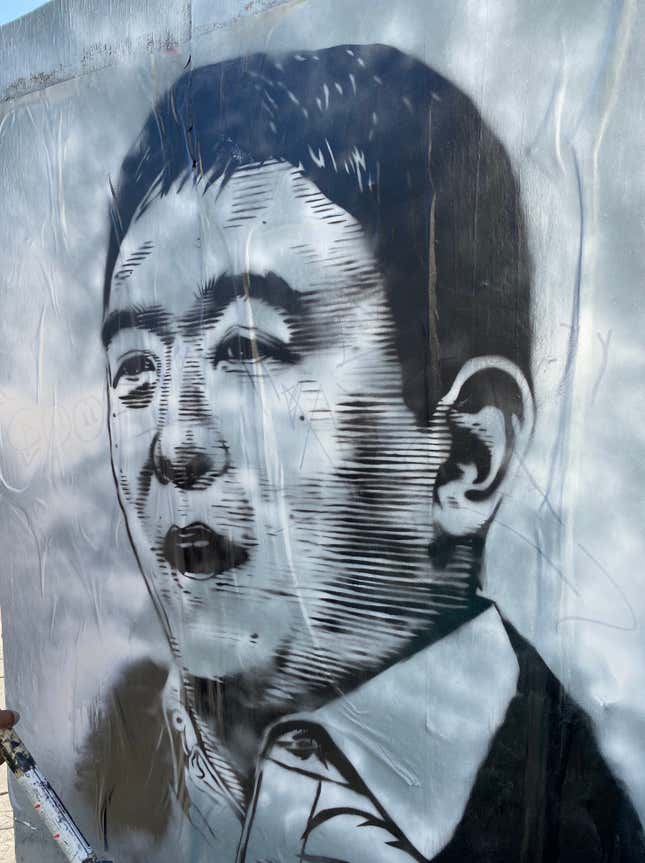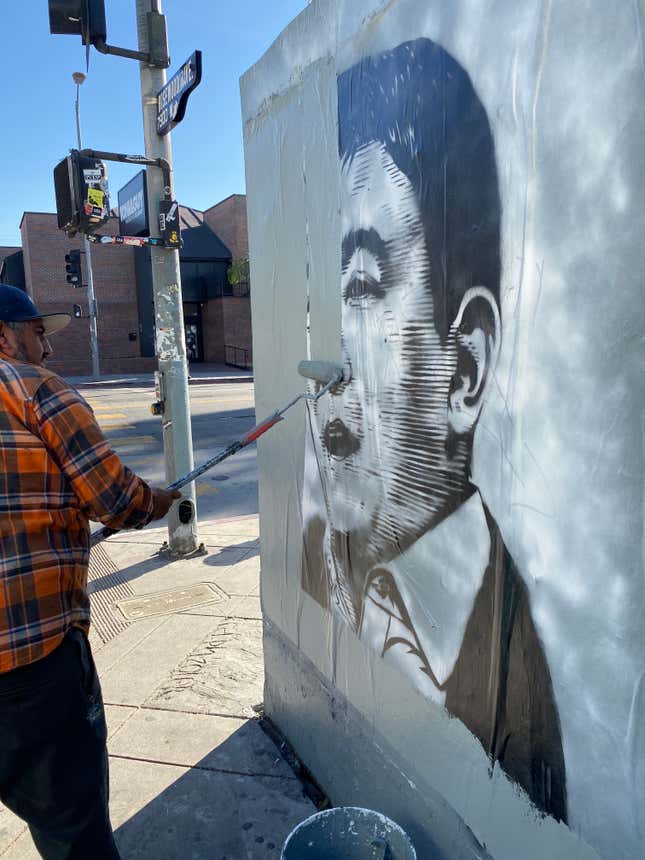My Day in the Yang Gang
Politics
Photo: Getty
One of the most comprehensive books ever written on the psychology of choosing a political candidate, The American Voter, suggests that the political associations we form as children will influence our votes for the rest of our lives. I was raised in Louisiana in the ’80s and ’90s, and thus noted criminal Edwin Edwards, the four-time governor accused of all manner of bribery and illegal activities, was my main political touchstone throughout my formative years. He was finally sentenced to prison on racketeering charges in the early 2000s, just as I became old enough to vote. Therefore, for the rest of my life, I’ve been saddled with the idea that every politician is a lying huckster who, if elected, will do absolutely nothing outside his or her own self-interest. I do understand it is my responsibility to vote, and I do so with the full expectation that three-quarters of the appealing promises made over the course of my candidates’ campaigns were bullshit that will never see fruition.
It is currently promising season in the Democratic primaries, where the last candidates standing are trying desperately to gain whatever donors, supporters, and attention they can as the race narrows. So it wasn’t really surprising that on Wednesday the morning before the sixth Democratic debate, longshot candidate Andrew Yang announced a cryptic partnership with Donald Glover, the actor, writer, and comedian famous for his brilliant TV series Atlanta as well as whip-smart hit songs like “This Is America.” On Instagram, the pair hinted at a mysterious pop-up event, giving only a Los Angeles address and a time. And because I’ve been cynical since I watched my first presidential election in kindergarten, it was easy for me to walk a mile from my apartment in Hollywood to the expensive, trendy Fairfax neighborhood of Los Angeles with the preconceived idea that any followers who turned up would know Yang is a joke candidate and support him in some sort of protest over the absurdist theater that has become America’s political system, ever since Donald Trump was allowed to speak.
I arrived at the event more than two hours early, and there were already a handful of supporters standing around outside a shuttered store called Tried and True Vintage located right next door to a humane pet shop named Bark N Bitches. A morning crowd waiting for a launch is not uncommon on Fairfax, where lines for events at the Supreme store have made my Saturday stumble to hangover brunch unpleasant so many times I’ve stopped fucking with Fairfax on the weekend. Yang’s merchandise, populated with his slogan, MATH (Make America Think Harder) fits in perfectly with the hypebeast culture of Fairfax and the coasts in general, where young people who love “This Is America”’s message about our present-day dystopia will also happily wait in line all afternoon for the chance to buy Supreme’s $40 socks.
But the half-dozen or so waiting for Yang had less than 24 hours notice following the Instagram posts, and no one was sure what to expect. However, hardcore members of the Yang Gang had been waiting since dawn. Corey, a bearded twenty-something in a hooded sweatshirt had arrived at 6 a.m., looking forward to the positive energy of the group after a fight with his girlfriend. Ty and Trace, brothers who had been Yang supporters since they saw his YouTube videos and heard him on podcasts had been waiting about two hours, along with Rebecca, who had recently met Andrew Yang at an event in Long Beach in November.
“Thank you for being here,” Rebecca tells me. “Thank you for being media that’s responsible.” I’m assuming she was referring to reports that the Yang Gang is a 4Chan offshoot drawing support from the same alt-right trolls that helped turn Donald Trump from a joke candidate into a president—along with the fact that much of the so-called Yang Gang believes the media is intentionally ignoring their candidate. She sincerely admires Andrew Yang and tells me that she is here because “He gives me a lot of hope for where the country is headed.” She says he’s the first candidate to make her feel seen.
In this line, which stretched around a city block by 11 a.m., Yang is a celebrity.
“He has an autistic child,” she tells me. “And with that he sees the work that caretakers of those children do, and he sees that they’re not compensated.” She and her friend, along with the rest of the group waiting for Yang, believe in the Universal Basic Income platform Yang is running on. For Rebecca, that means people with disabilities or their caretakers will have an “economic floor,” intrinsic value in a country where healthcare and equal opportunities are thin on the ground for so many.
Yang is still polling at 3 percent, and I doubt many people outside the bubble of those following the Democratic primaries have any idea who he is or what his policies are. But in this line, which stretched around a city block by 11 a.m., he is a celebrity. From the front of the line to the back, supporter after supporter tells me that they had heard him on the Joe Rogan podcast, praising the fact that he had also appeared on Tucker Carlson. Only one 19-year-old man I speak to says he came purely for Donald Glover, and even he says that now he is considering becoming a member of the Yang Gang. They believe that he is the only candidate who can appeal to a disenfranchised middle America—a Democrat who can win back Trump supporters.

“Why not Bernie?” I ask the couple dozen people I interview from the front, back, and middle of the line. As if reading from a script they tell me it’s because Bernie has promised everyone government jobs, and what they want is the freedom intrinsic in the Freedom Dividend, a plan to provide all Americans with an untaxed $1,000 a month. It affords them a future in a world where they see technology as our biggest boon and our biggest threat, simultaneously excited about funding innovation and worried that automation will soon leave many jobless.
-

-

-

-

-

-

-

-

-

-

-

-

-

-

-

-

-

-

-

-

-

-

-

-

-

-

-

-

-

-

-

-

-

-

-

-

-

-

-

-









































